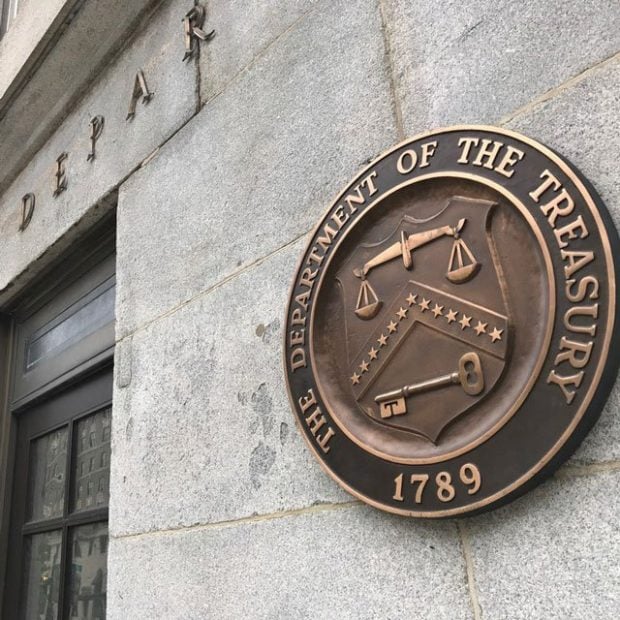 Department of Treasury, Washington, D.C. (Source: AdobeStock)
Department of Treasury, Washington, D.C. (Source: AdobeStock)
In letters sent by CUNA and NAFCU to the U.S. Department of Treasury's Community Development Financial Institutions (CDFI) Fund, organization officials stated their objections to the proposed changes and rushed timeline of the CDFI certification process.
Currently, the CDFI Fund is not accepting applications during a six-month blackout period that began Oct. 1, while the new application process is being created.
Recommended For You
Letters filed by CUNA and NAFCU officials Monday stated the proposed changes to the CDFI certification process would implement a one-year effective date. Both agencies said they believe that timeline is too short for many CDFI-eligible credit unions to be in compliance with the new standards.
The implementation date for the Proposed Certification Application is April 3, 2023.
"NAFCU does not support the one-year effective date for CDFIs to come into compliance with the new certification standards. The majority of the proposed revisions are burdensome on CDFIs, especially smaller institutions that do not have the resources to make the required changes so quickly," NAFCU Senior Regulatory Affairs Counsel Aminah Moore wrote. "The changes are significant and CDFIs are going to have to work at lightning speed to incorporate these changes in order to comply with the proposed requirements. NAFCU recommends a three-year effective date for CDFIs to come into compliance with the proposed certification standards or a mandatory three-year cure period for those CDFIs that do not meet the requirements within the one-year effective date."
CUNA Senior Director of Advocacy and Counsel Elizabeth Sullivan wrote, "CUNA broadly supports the Fund's efforts to ensure that organizations that obtain a CDFI certification are truly putting mission front and center and helping the people in their Target Markets. However, the Fund's application is not properly calibrated to achieve that end. Many of the changes in the Proposed Certification Application would exclude significant swaths of credit unions from qualifying as CDFIs for reasons that are incidental or inexplicable.
"Many of these changes are not supported by policy justifications in the application and are in opposition to statutory or regulatory provisions applicable to credit unions," Sullivan stated.
According to Moore, NAFCU asked CDFI officials to do the following:
- Defer to an applicant's functional regulator regarding what products should and should not be offered to consumers.
- Provide all credit unions parity with banks and exempt them from completing the financing entity section of the new application, as well as exempting affiliates from demonstrating primary mission requirements.
CUNA recommended the following:
- Establish a reasonable pathway for CDFIs to retain certification following a merger.
- Amend the responsible financing practices required to avoid excluding credit unions offering PALs and responsible balloon payment or nonconforming mortgage loans.
- Exclude regulated depositories from the Fund's financial interest policy so accountable credit union board members are not prohibited from obtaining loans at the credit union.
- Reduce the reliance on communication via service requests in the Awards Management Information System.
- Memorialize more formal due process including reasonable notice, an appeals process and an ombuds office.
- Align reporting deadlines and streamlining/combining forms where appropriate.
In an editorial published in CU Times on Sept. 15, CUNA President/CEO Jim Nussle wrote, "The mission of the CDFI Fund is of upmost importance to credit unions, which strive to promote financial well-being for all and advance the communities they serve, and the Fund itself must be protected and strengthened. Bureaucratic paperwork issues are no reason to deprive distressed communities billions in capital, yet that's what we're seeing.
"CDFIs deserve better, and our communities deserve better."
Comments concerning changes to the CDFI Fund are due by Dec. 19.
© Touchpoint Markets, All Rights Reserved. Request academic re-use from www.copyright.com. All other uses, submit a request to [email protected]. For more inforrmation visit Asset & Logo Licensing.







